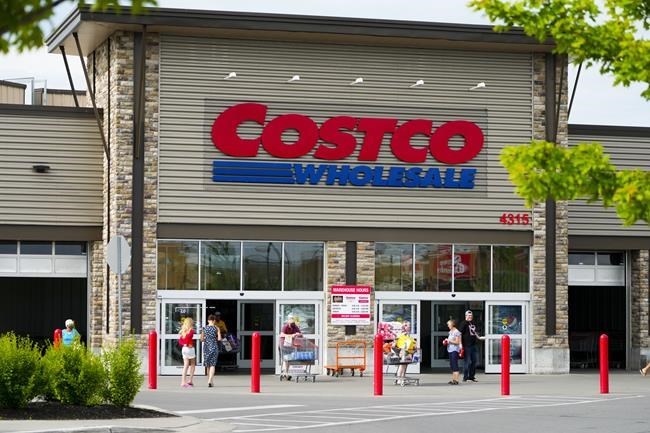Costco has not sought to increase its profits amid rapidly rising grocery prices in Canada, said Pierre Riel, the executive vice-president and chief operating officer of Costco Wholesale International and Canada, in front of a parliamentary committee studying food inflation.
"The final price our members pay for food is dependent on many factors at each stage of the supply chain," said Riel, including farmers, processors, distributors, global commodity markets and world events.
Riel, who spoke before the committee Monday evening, is the fifth executive of a major grocer to appear before the committee, after calls from federal politicians for the grocery industry to be more transparent about rising prices and profits.
Early in March, the heads of Loblaw, Metro and Empire, the largest Canadian grocers, told MPs that food inflation has not been caused by profit-mongering.
Later the same month, Walmart Canada's CEO echoed the others, saying the American giant is not trying to profit from food inflation.
At the meeting, Riel touted Costco’s employee benefits and pay as well as the retailer’s unique model, where customers pay for memberships in order to access the company’s warehouse-style stores.
“Our presence provides Canadian consumers with a different option,” said Riel, adding that he believes in order to meaningfully affect grocery prices, each participant in the supply chain has a role to play.
“We work every day with our suppliers to reduce costs,” he said.
The Bank of Canada raised interest rates at a breakneck pace over the past year in an effort to quell inflation, but food inflation has been persistent.
Grocery inflation has been outpacing overall inflation, with prices rising almost 11 per cent in February compared with a year earlier.
Excluding membership revenue, which makes up almost 60 per cent of Costco’s pre-tax profits, the company’s pre-tax profit margin was 1.43 per cent in the last three years, said Riel.
Conservative MP Lianne Rood questioned Riel about whether Costco imposes fees, penalties or chargebacks on its suppliers.
Riel said Costco does not charge listing fees, unloading fees and other penalties, adding that the company doesn’t make unilateral decisions but rather negotiates with the suppliers.
“We want to do the right thing,” he said.
“We are tough, but we are fair.”
Rood said Riel’s answers regarding fees and penalties were in “stark contrast” to the other grocers’ responses.
These kinds of fees are one of the issues at hand in efforts to create a grocery code of conduct.
Riel said Costco has received a draft of the code of conduct and will participate if the goal of the code is to lower costs for consumers.
Riel was joined at the meeting by representatives from Farm Credit Canada and 100km Foods Inc. as well as David Macdonald, senior economist at the Canadian Centre for Policy Alternatives.
The March 8 meeting with the three Canadian grocery executives included NDP Leader Jagmeet Singh repeatedly asking Loblaw chairman and president Galen Weston, "How much profit is too much profit?”
Weston responded by saying that reasonable profitability is an important part of a successful business, while Empire president and CEO Michael Medline agreed.
The Who’s Who 2022 report by Canadian Grocer found that Loblaw, Sobeys and Metro together make more than half of all food retail sales in Canada. When Walmart and Costco are added, the five companies comprise three-quarters of all grocery sales across the country, the report found.
This report by The Canadian Press was first published April 17, 2023.
The Canadian Press





